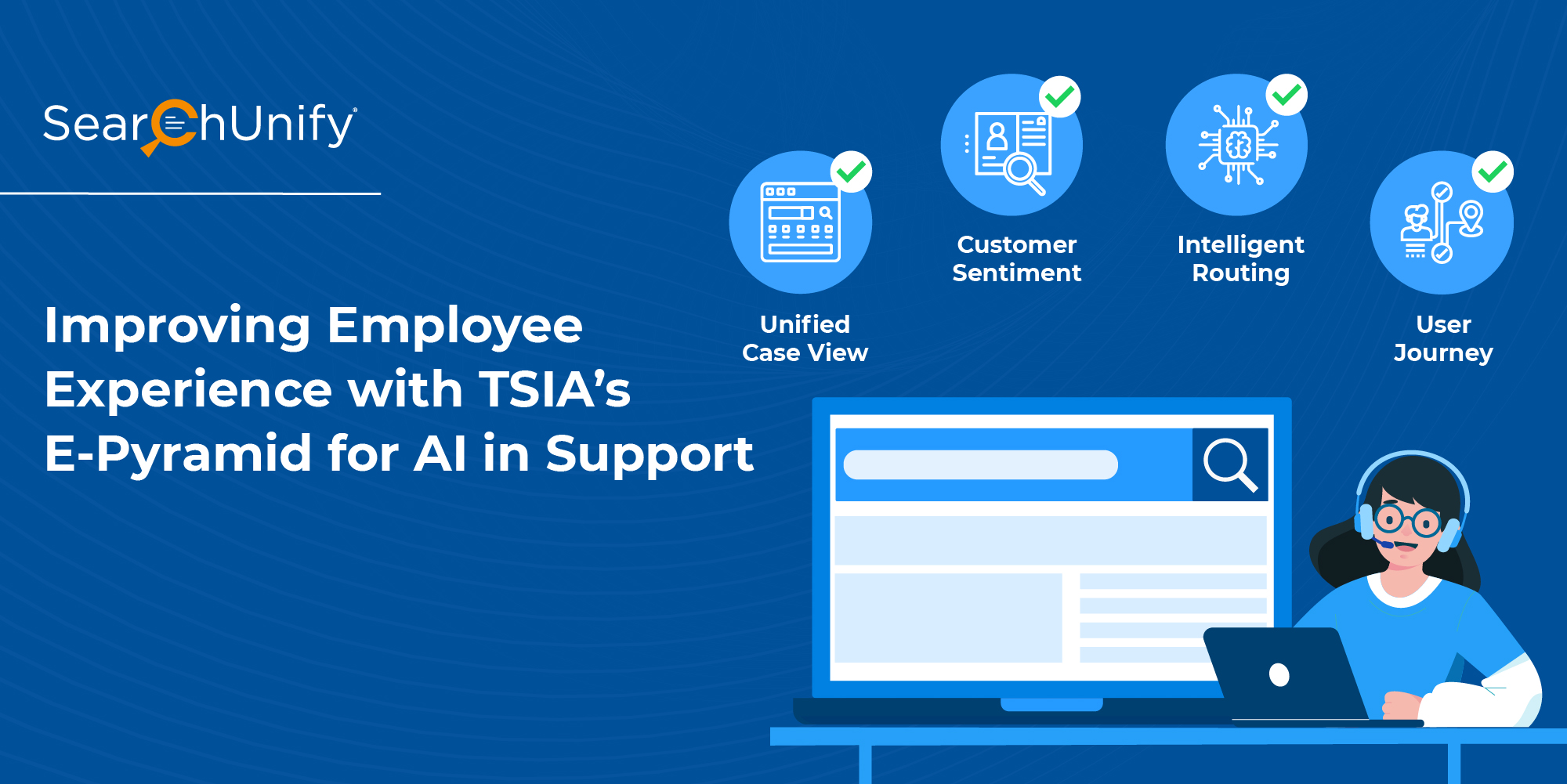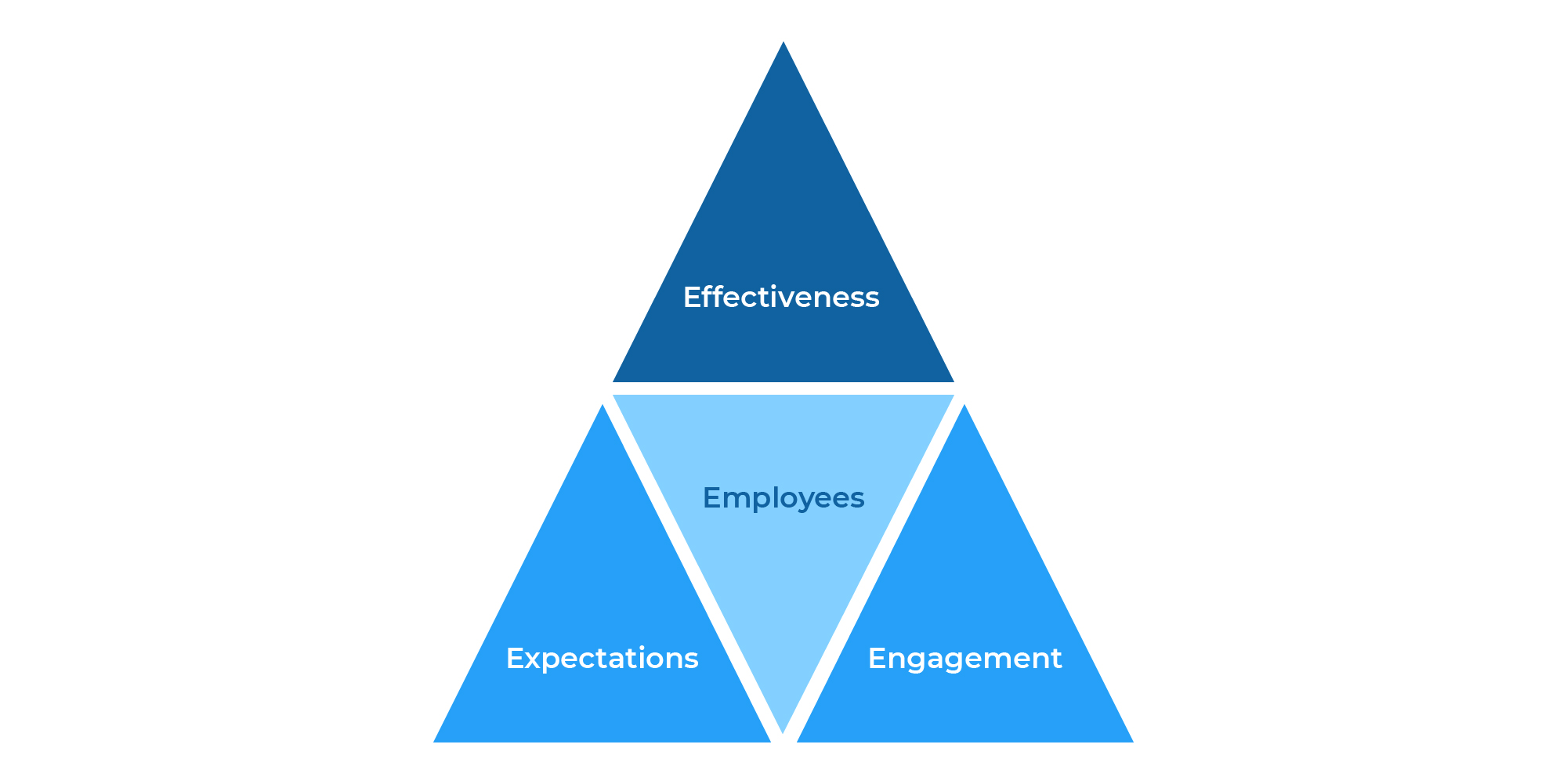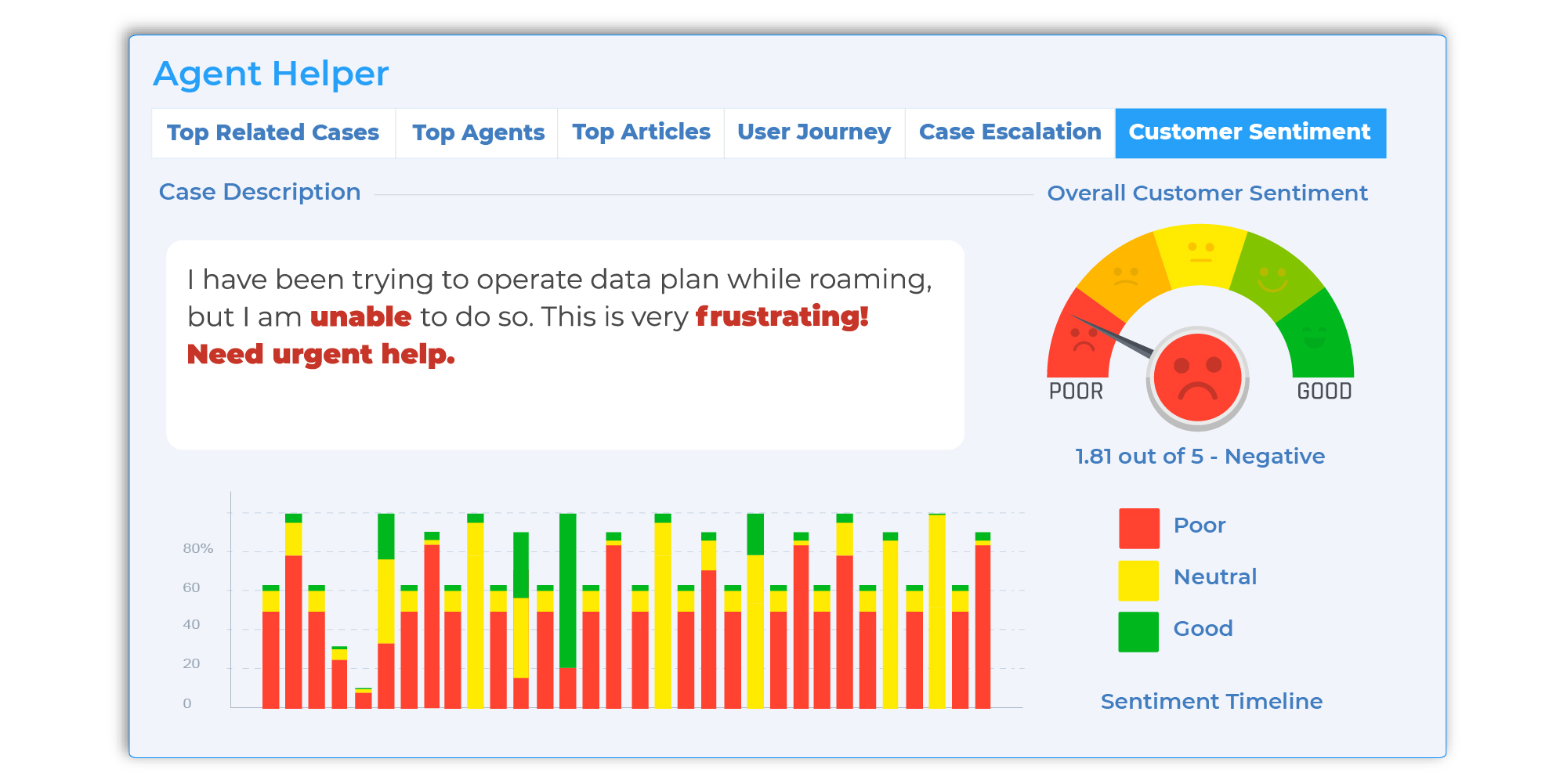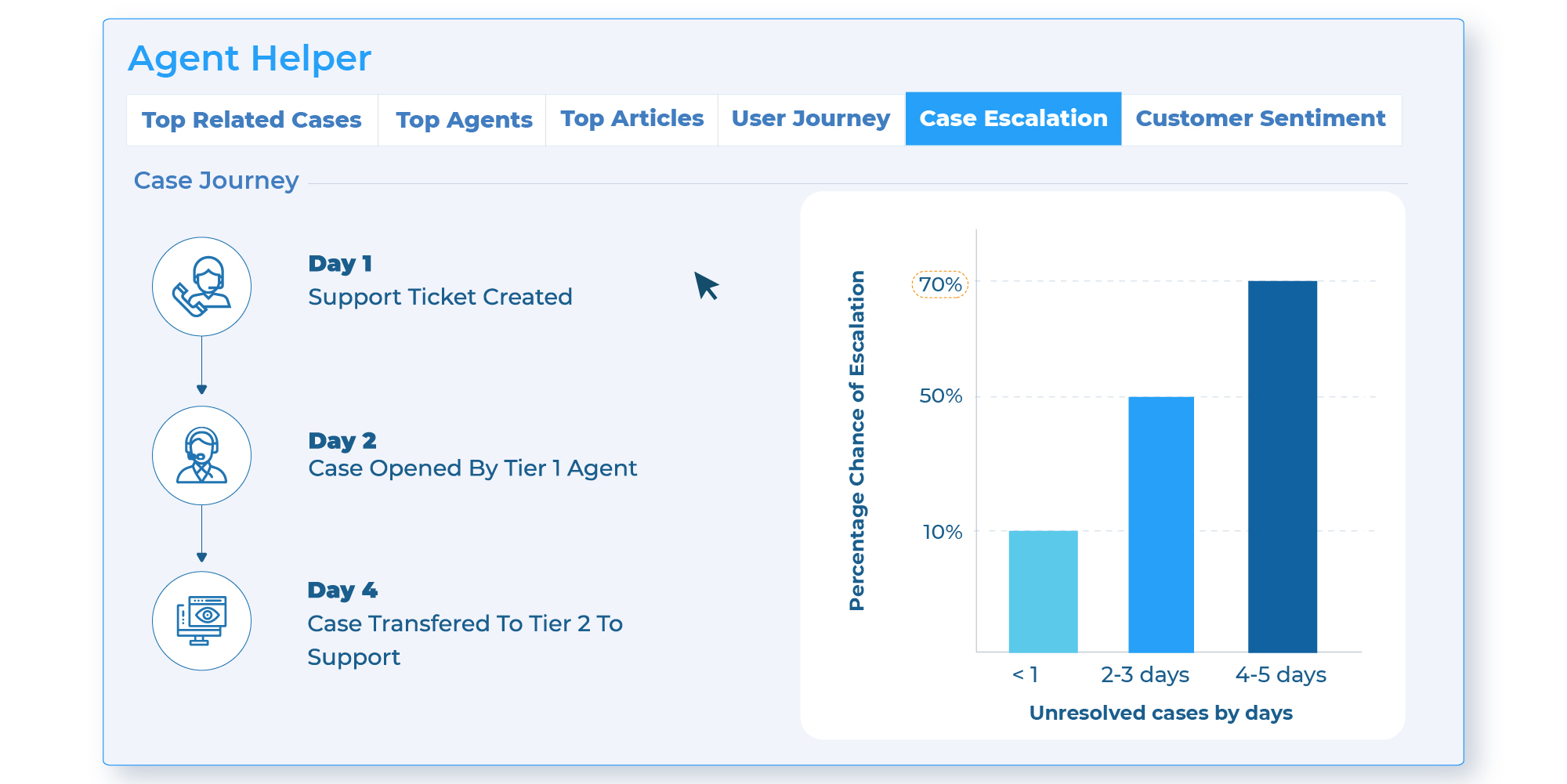
The world is transforming heaps and bounds with AI and cognitive tech and support teams are among the ones that have benefited the most with it. Organizations are focused on delivering the best experiences to their customers via effective support. And why not? Customer experience is speculated to beat price and product to become the key factor for brand differentiation.
And while customer satisfaction is the goal, organizations cannot neglect the agents. Organizations need to make sure that the agents are not overburdened or entangled in complicated workflows. After all, happy agents = happy customers! According to Cisco’s Global Contact Center Survey 2020, 74% of the respondents affirm that content agents create happy customers.
What is the E-Pyramid?
AI and cognitive tech are considered effective tools to reduce costs and cut short the processes. But they’re just the by-products. The focus of these technologies should be to take some load off your agents’ back by automating simple and repetitive tasks. This helps to make room for new, challenging, and high priority tasks.
Some folks think these technologies can replace agents. That’s not the case. They can only empower agents and improve their experience. Even TSIA’s e-Pyramid for AI in Support suggests the same.
The association suggests focusing on each of the following “E” to optimally utilize AI in your support organization.

Source : www.tsia.com
Expectations:
Manage Expectations. Often the organizations get so focused on the customers that the employees get blurred in the background. While customers’ opinions matter a lot, employees are a vital asset and their expectations from the org needs to be heard.
For this, giving them an environment where they feel heard and can easily keep their views, opinions, and ideas forward is crucial. Thus, understanding their expectations and managing them forms the first “E” of the pyramid.
Engagement:
Keep Employees Engaged. The employees understand the ground reality better. They perform routine tasks and understand which ones fall in the category of mundane and repetitive.
Thus, employees should be engaged more to understand which areas can use a little bit of AI magic. Taking suggestions, assessing them, and rewarding the best of them increases employee engagement.
Employees:
Focus on the Employee. As mentioned earlier, AI is thought to be a tool that reduces the headcount in an organization. This certainly is a false notion, but for the support employees under this impression, it is a big concern. While AI and ML can definitely automate some processes, the human touch is an integral part that completes the picture.
Hence, this notion needs to be addressed and re-engineered. The employees need to be assured that the introduction of AI and ML will only ease their jobs so that they can focus more on the important things.
Effectiveness:
Measure and Monitor Effectiveness. AI and cognitive tech can take care of the smallest and easiest tasks in hand. But AI should be about adding value to the aspects it touches. Thus, continuously examining the effectiveness of the processes graced with AI and ML can help understand how this proved to be a game-changer for your organization.
Measuring and reporting the right aspects such as the financial impact, employee satisfaction, and customer churn rates, among a few, can be considered in measuring the effectiveness of AI implementation.
The Onset of AI-Powered Support Workflows
Let us see how cognitive tech can improve the EX. CSRs continuously deal with the sensitive aspect of your organization – an agitated customer looking for a satisfactory resolution. Studies indicate that it takes 12 positive customer service experiences to negate one negative experience. This indicates how challenging the job of a support agent is. No wonder, the support agent churn rates are so high. Here, cognitive tech can help. How? Let us understand.
1. Providing Crucial Information and Context to the CSRs
A survey conducted by the Aberdeen Group states that the agents spend 17% of their time searching for relevant knowledge to do their job. So, the unified cognitive search platforms ensure that the agents have access to the information which equips them to provide tailored and individualized responses.
2. Equipping Agents to Understand the Customer-Sentiments
The most challenging bit of a CSR’s job is handling irate customers. Given a choice, no one might opt to deal with one. While the agent has to be extra careful while speaking, they also have to ensure that they are setting the right expectations and if needed, are ready to walk the extra mile to find them the best solution.
Cognitive search can be your savior here. Tools like SearchUnify’s Agent Helper runs a quick sentiment check for the agent. It uses machine learning to identify whether the tone of the message is positive, negative, or neutral. This not only enables the agents to frame a response accordingly but also helps your support org to prioritize the case if needed.

3. Matching the Right Agents with Customers
Agents might differ in terms of expertise and skills, and that affects their ability to provide resolutions. The expertise has to be considered for providing best resolutions. Here, AI-powered routing matches the cases with the expertise of the agent, and the history of the resolved cases of the agent.
This ensures that the distressed customer is directed to the best man for the job. It also saves time for the customer and the CSR.
4. Prioritizing the Escalated Tickets
Some tickets face escalations because of varied reasons like time constraints, agent expertise, or others. This creates a situation where further escalation or delay might result in customer churn. It saves all the case data for the next assignee of the case. As a result, the new agents don’t have to start the process from scratch. They can quickly start working on closing the ticket.
With Agent Helper, they can access the case journey, understand if there are any further chances of an escalation, and how urgently a particular case needs to be attended. This helps the agents to respond to the missed tickets that went unanswered and thus helps to prioritize them first.

Want to Transform Employee Experience Across Each Stage of Customer Support Journey?
While customer satisfaction is the key to a successful organization, employee experience matters too. With expectations from customer service teams soaring each day, support leaders are realizing the importance of enriching their teams with tools that enhance both agent productivity and service experience. To know more about leveraging cross-channel search and AI-powered applications for better EX, watch our recent session at CCW Online Summit 2020.











